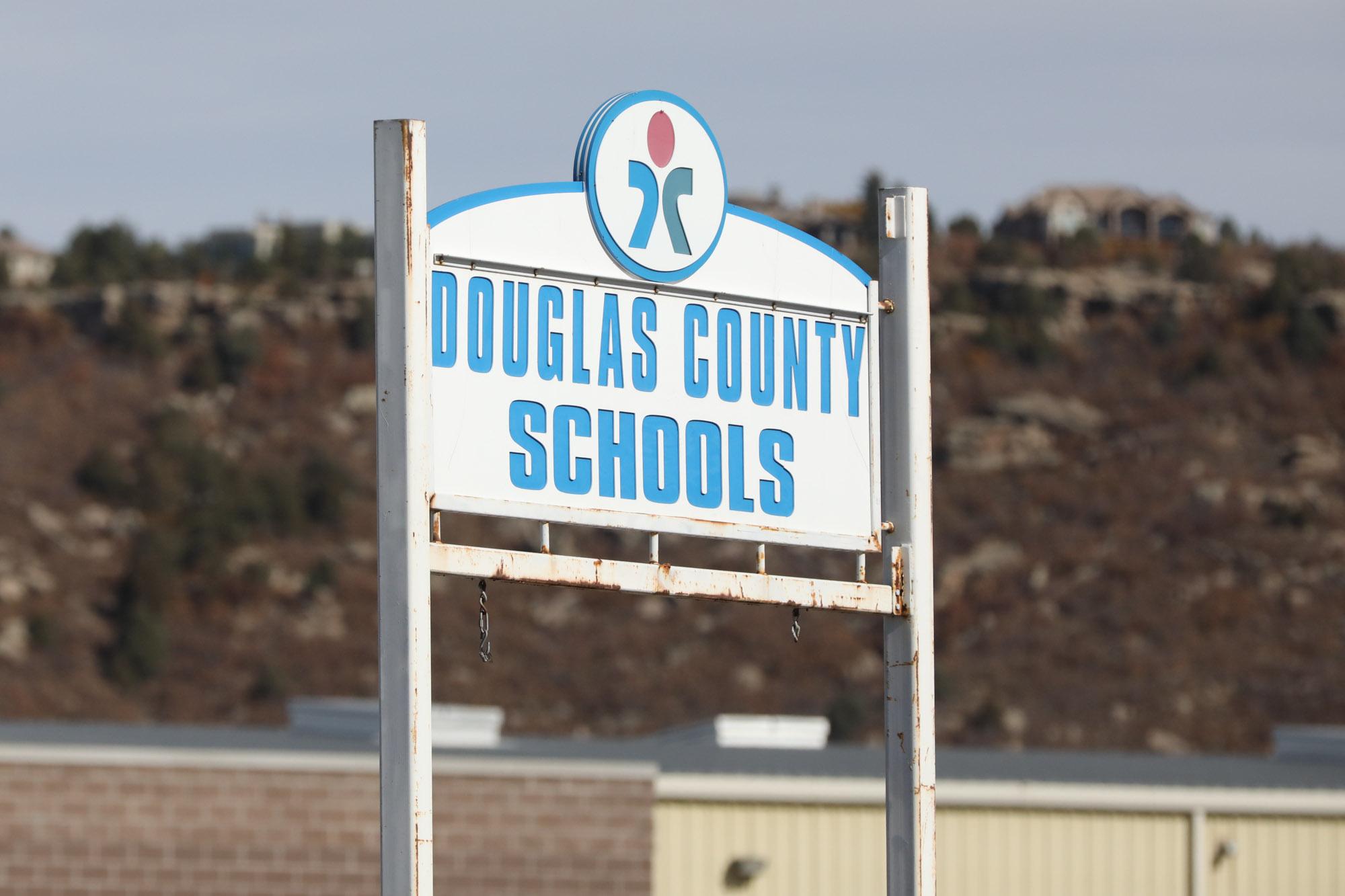
A Douglas County District Court judge did not yet issue a ruling Friday after a hearing to decide if a preliminary injunction should be made to the county's school board for potentially violating state open meetings law. The injunction would legally order majority members of the board to stop the behavior in question.
Judge Jeffrey K. Holmes said he would review the evidence brought by attorneys for both the Douglas County School District and Robert Marshall, a Douglas County resident who raised children in the district and filed the lawsuit. Judge Holmes did not specify when he would issue a written ruling.
The lawsuit centers around private phone calls leading up to a Jan. 28 meeting in which school board president Mike Peterson and vice-president Christy Williams met with former Superintendent Corey Wise to tell him of their consensus to “move in a different direction.” Williams and Peterson said on the stand Friday that they presented Wise with four options: "move up" his retirement, resign, or be fired with or without cause. He was ultimately fired in early February in a public meeting.
The other three board members not involved in the lawsuit — Susan Meek, David Ray and Elizabeth Hanson — said they were not informed of the meeting with Wise until afterward.
Marshall’s attorney, Steven Zansberg, argued that while three or more board members did not meet at the same time, they still violated open meetings law by relaying information about their mutual dissatisfaction with Wise in various phone calls to each other through what he called “daisy chain” and “hub and spoke” methods. This form of serialized communication is also known as a “walking quorum.”
“If the view of the defendants [that the board members’ communication was legal] was correct, then we don’t have an open meetings law,” Zansberg said. “The public is completely in the dark…”
Under Colorado’s open meetings law, when three or more members of an elected board (or a quorum if that’s less than three) discuss public business or a potential formal action, their meeting must be noticed and open to the public.
The district’s representatives, three attorneys from the firm Hall & Evans, sought to show that this form of communication was standard practice for board members. They also argued that any potential wrongdoing was “cured” by the board’s public vote to terminate Wise.
Four of the seven board members — Peterson, Williams, Rebecca Myers and Kaylee Winegar — the defense argued, “did no more than take each other's metaphorical temperature,” when communicating about Wise.
Colorado appellate courts haven’t before ruled specifically on whether “walking quorums” violate the state’s open meetings law. Other states have ruled that weaving together multiple individual meetings to come to a collective decision is the same as if all the individuals would have met together.
The hearing is the latest development in a tumultuous few months since new conservative majority board members were elected in November.








